|
Books Should Be Free Loyal Books Free Public Domain Audiobooks & eBook Downloads |
|
|
Books Should Be Free Loyal Books Free Public Domain Audiobooks & eBook Downloads |
|
History Books |
|---|
|
Book type:
Sort by:
View by:
|
By: Alexandre Dumas (1802-1870) | |
|---|---|
 Louise de la Valliere
Louise de la Valliere
After The Three Muskateers and Twenty Years After the adventurous story of Athos, Porthos, Aramis and D'Artagnan continues! The Vicomte of Bragelonne: Ten Years Later (French: Le Vicomte de Bragelonne ou Dix ans plus tard) is the last of the Musketeer novels. It is usually divided into four volumes and this third volume contains chapters 141-208. | |
 Ten Years Later
Ten Years Later
After The Three Muskateers and Twenty Years After the adventurous story of Athos, Porthos, Aramis and D'Artagnan continues!The Vicomte of Bragelonne: Ten Years Later (French: Le Vicomte de Bragelonne ou Dix ans plus tard) is the last of the Musketeer novels. It is usually divided into four volumes and this second volume contains chapters 76-140. | |
 The Companions of Jehu
The Companions of Jehu
| |
 Chicot the Jester
Chicot the Jester
This sequel to Dumas' “Marguerite de Valois” begins four years after the sudden death of King Charles IX and succession of his brother Henry III. The reign of King Henry III was plagued with rebellion and political intrigue due to the War of the Three Henries, where his regency was challenged by King Henry of Navarre (leader of the Huguenots) and Henry I, Duke of Guise (leader of the Catholic League). Dumas weaves two main storylines through this turbulent backdrop: one of the love ignited between le Comte de Bussy and la Dame de Monsoreau, and another of the friendship between King Henry III and his truly unique jester, Chicot (Jean-Antoine d'Anglerais). | |
 The Conspirators The Chevalier d'Harmental
The Conspirators The Chevalier d'Harmental
| |
 The Regent's Daughter
The Regent's Daughter
| |
By: Daniel Defoe (1659/1661-1731) | |
|---|---|
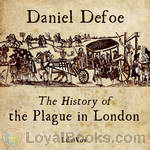 The History of the Plague in London
The History of the Plague in London
The History of the Plague in London is a historical novel offering an account of the dismal events caused by the Great Plague, which mercilessly struck the city of London in 1665. First published in 1722, the novel illustrates the social disorder triggered by the outbreak, while focusing on human suffering and the mere devastation occupying London at the time. Defoe opens his book with the introduction of his fictional character H.F., a middle-class man who decides to wait out the destruction of the plague instead of fleeing to safety, and is presented only by his initials throughout the novel... | |
 A Journal of the Plague Year, written by a citizen who continued all the while in London
A Journal of the Plague Year, written by a citizen who continued all the while in London
| |
 The Fortunate Mistress (Parts 1 and 2) or a History of the Life of Mademoiselle de Beleau Known by the Name of the Lady Roxana
The Fortunate Mistress (Parts 1 and 2) or a History of the Life of Mademoiselle de Beleau Known by the Name of the Lady Roxana
| |
 Memoirs of a Cavalier A Military Journal of the Wars in Germany, and the Wars in England. From the Year 1632 to the Year 1648.
Memoirs of a Cavalier A Military Journal of the Wars in Germany, and the Wars in England. From the Year 1632 to the Year 1648.
| |
 Tour through Eastern Counties of England, 1722
Tour through Eastern Counties of England, 1722
| |
 From London to Land's End and Two Letters from the "Journey through England by a Gentleman"
From London to Land's End and Two Letters from the "Journey through England by a Gentleman"
| |
 Atalantis Major
Atalantis Major
| |
 Dickory Cronke
Dickory Cronke
| |
By: Herman Melville | |
|---|---|
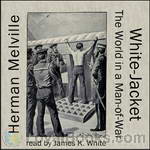 White Jacket, or The World in a Man-of-War
White Jacket, or The World in a Man-of-War
This is a tale based on Melville's experiences aboard the USS United States from 1843 to 1844. It comments on the harsh and brutal realities of service in the US Navy at that time, but beyond this the narrator has created for the reader graphic symbols for class distinction, segregation and slavery aboard this microcosm of the world, the USS Neversink. (Introduction by James K. White) | |
 The Encantadas, Or Enchanted Isles
The Encantadas, Or Enchanted Isles
The Encantadas or Enchanted Isles is a novella by American author Herman Melville. First published in Putnam's Magazine in 1854, it consists of ten philosophical "Sketches" on the Encantadas, or Galápagos Islands. It was collected in The Piazza Tales in 1856. The Encantadas was to become the most critically successful of that collection. All of the stories are replete with symbolism reinforcing the cruelty of life on the Encantadas. (Introduction excerpted from Wikipedia) | |
By: G. K. Chesterton | |
|---|---|
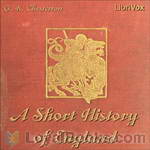 A Short History of England
A Short History of England
Gilbert Keith Chesterton was a prolific writer on many topics. His views of history were always from the standpoint of men and their interactions, and it may fairly be said he saw all of history as a battle between civilization and barbarism. So it has always been, and that remains true even today.“But it is especially in the matter of the Middle Ages that the popular histories trample upon the popular traditions. In this respect there is an almost comic contrast between the general information... | |
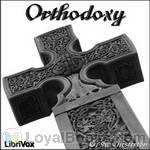 Orthodoxy
Orthodoxy
Orthodoxy is a book that has become a classic of Christian apologetics. In the book's preface Chesterton states the purpose is to "attempt an explanation, not of whether the Christian faith can be believed, but of how he personally has come to believe it." In it, Chesterton presents an original view of the Christian religion. He sees it as the answer to natural human needs, the "answer to a riddle" in his own words, and not simply as an arbitrary truth received from somewhere outside the boundaries of human experience. | |
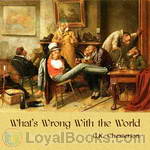 What's Wrong With the World
What's Wrong With the World
Gilbert Keith Chesterton (1874–1936) has been called the “prince of paradox.” Time magazine observed of his writing style: “Whenever possible Chesterton made his points with popular sayings, proverbs, allegories—first carefully turning them inside out.” His prolific and diverse output included journalism, philosophy, poetry, biography, Christian apologetics, fantasy and detective fiction. The title of Chesteron’s 1910 collection of essays was inspired by a title given to him two years earlier by The Times newspaper, which had asked a number of authors to write on the topic: “What’s wrong with the world?”... | |
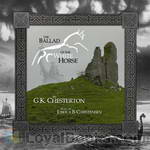 The Ballad of the White Horse
The Ballad of the White Horse
An English epic poem that follows the exploits of Alfred the Great in his defense of Christian civilization in England from the heathen nihilism of the North. Following a string of defeats at the hands of the invading Danes, a vision from heaven in the river island of Athelney fills Alfred with joy and hope. Though it gives no promise of victory in the coming struggle, it inspires him to rally his chieftains for a last stand against the invading hordes. His adventures lead throughout the country... | |
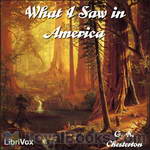 What I Saw in America
What I Saw in America
“Let me begin my American impressions with two impressions I had before I went to America. One was an incident and the other an idea; and when taken together they illustrate the attitude I mean. The first principle is that nobody should be ashamed of thinking a thing funny because it is foreign; the second is that he should be ashamed of thinking it wrong because it is funny.” (Gilbert Keith Chesterton) | |
 The New Jerusalem
The New Jerusalem
“On the road to Cairo one may see twenty groups exactly like that of the Holy Family in the pictures of the Flight into Egypt; with only one difference. The man is riding on the ass.” “The real mistake of the Muslims is something much more modern in its application than any particular passing persecution of Christians as such. It lay in the very fact that they did think they had a simpler and saner sort of Christianity, as do many modern Christians. They thought it could be made universal merely by being made uninteresting... | |
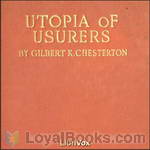 A Utopia of Usurers
A Utopia of Usurers
“Now I have said again and again (and I shall continue to say again and again on all the most inappropriate occasions) that we must hit Capitalism, and hit it hard, for the plain and definite reason that it is growing stronger. Most of the excuses which serve the capitalists as masks are, of course, the excuses of hypocrites. They lie when they claim philanthropy; they no more feel any particular love of men than Albu felt an affection for Chinamen. They lie when they say they have reached their position through their own organising ability... | |
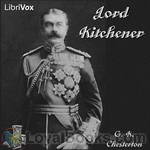 Lord Kitchener
Lord Kitchener
“The paradox of all this part of his life lies in this–that, destined as he was to be the greatest enemy of Mahomedanism, he was quite exceptionally a friend of Mahomedans.” | |
By: Louisa May Alcott (1832-1888) | |
|---|---|
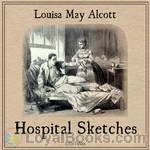 Hospital Sketches
Hospital Sketches
Alcott in 1862 served as a nurse in Georgetown, D.C during the Civil War. She wrote home what she observed there. Those harrowing and sometimes humorous letters compiled make up Hospital Sketches. | |
 Under the Lilacs
Under the Lilacs
"When two young girls decide to have a tea party with their dolls and a mysterious dog comes and eats their prized cake, they end up finding a circus run-away, Ben Brown. Ben is a horse master, and loves horses, so when the Moss' take the young boy in, they decide to give him work at the neighbors house driving cows (on a horse, of course). After that a series of events happens, and Ben finds out his beloved father is dead. Miss Celia, a neighbor, feels sorry and comforts him, and finally offers to let Ben stay with her and her fourteen-year-old brother, Thornton who is called Thorny... | |
By: Victor Hugo (1802-1885) | |
|---|---|
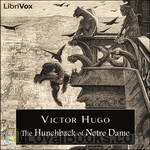 The Hunchback of Notre Dame
The Hunchback of Notre Dame
One of the great literary tragedies of all time, The Hunchback of Notre Dame features some of the most well-known characters in all of fiction - Quasimodo, the hideously deformed bellringer of Notre-Dame de Paris, his master the evil priest Claude Frollo, and Esmeralda, the beautiful gypsy condemned for a crime she did not commit. | |
 Napoleon the Little
Napoleon the Little
| |
By: Elizabeth Gaskell | |
|---|---|
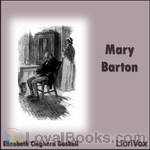 Mary Barton
Mary Barton
Mary Barton is the first novel by English author Elizabeth Gaskell, published in 1848. The story is set in the English city of Manchester during the 1830s and 1840s and deals heavily with the difficulties faced by the Victorian lower class. The novel begins in Manchester, where we are introduced to the Bartons and the Wilsons, two working class families. John Barton reveals himself to be a great questioner of the distribution of wealth and the relation between the rich and the poor. He also relates how his sister-in-law Esther has disappeared after she ran away from home... | |
By: Edith Wharton (1862-1937) | |
|---|---|
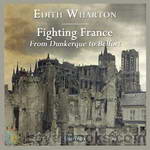 Fighting France, from Dunkerque to Belfort
Fighting France, from Dunkerque to Belfort
American novelist Edith Wharton was living in Paris when World War I broke out in 1914. She obtained permission to visit sites behind the lines, including hospitals, ravaged villages, and trenches. Fighting France records her travels along the front in 1914 and 1915, and celebrates the indomitable spirit of the French people. | |
By: Giovanni Boccaccio (1313-1375) | |
|---|---|
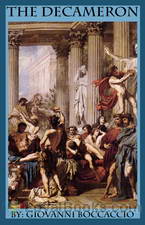 The Decameron
The Decameron
Giovanni Boccaccio’s The Decameron is a collection of novellas or short novels written during the 14th century. There are 100 tales contained in the book which is presented together. The book’s title The Decameron combines the two Greek words “deka” meaning ten and “hemera” meaning day. The title can be literally translated as “ten day,” which is also the time frame in which the stories are told by the 7 young women and 3 young men. In the book, each of the ten persons took their turns to tell stories for a day... | |
By: Stephen Leacock (1869-1944) | |
|---|---|
 Chronicles of Canada -- Dawn of Canadian History: Aboriginal Canada
Chronicles of Canada -- Dawn of Canadian History: Aboriginal Canada
Most readers of Stephen Leacock's works are familiar with his witty and humorous writings, but few may be aware that he was also a gifted teacher, political ideologue, economist and fiction writer. Though he wrote six books on Canadian history, none of them attained the status of a standard text on the subject and were regarded more as opinion pieces without much academic foundation. Yet, the Chronicles of Canada series by Stephen Leacock remains an interesting and entertaining read. In this volume, Dawn of Canadian History: Aboriginal Canada, which is part of a thirty-two book series of short and simple essays, Leacock explores the little known origins of Canada's past... | |
 The Unsolved Riddle of Social Justice
The Unsolved Riddle of Social Justice
This lengthy political essay by noted Canadian humourist Stephen Leacock was written while he was professor of political economy at McGill University. He argues for a middle ground between individualism/capitalism and pure socialism. Listeners in the early 21st century may find this 90-year old essay oddly topical. | |
By: George MacDonald (1824-1905) | |
|---|---|
 St. George and St. Michael
St. George and St. Michael
| |
By: Joseph Conrad (1857-1924) | |
|---|---|
 Under Western Eyes
Under Western Eyes
Under Western Eyes (1911) is a novel by Joseph Conrad. The novel takes place in St. Petersburg, Russia, and Geneva, Switzerland, and is viewed as Conrad's response to the themes explored in Crime and Punishment, Conrad being reputed to have detested Dostoevsky. It is also, some say, Conrad's response to his own early life; his father was a famous revolutionary imprisoned by the Russians, but, instead of following in his father's footsteps, at the age of sixteen Conrad left his native land forever... | |
By: Harriet Beecher Stowe (1811-1896) | |
|---|---|
 Sunny Memories of Foreign Lands, Volume 2
Sunny Memories of Foreign Lands, Volume 2
| |
By: Jacob Abbott (1803-1879) | |
|---|---|
 Alexander the Great
Alexander the Great
Tutored by Aristotle, compelled to ascend the throne at the age of 20 when his illustrious father was assassinated, driven by a passion for expanding the borders of his tiny kingdom, Alexander of Macedon was one of the most towering figures of ancient history. He is brought to vivid life in this gripping volume by the American children's writer Jacob Abbott. In his short but eventful life, the young Macedonian king went on to rule over one of the most powerful and largest empires in the ancient world, breaking the hegemony of the powerful Persian dynasty of Darius... | |
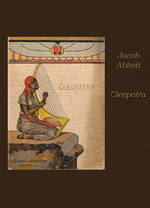 Cleopatra
Cleopatra
The French mathematician and philosopher, Blaise Pascal once remarked, “Cleopatra's nose. Had it been shorter, the whole face of the world would have been changed!” Such was the legendary power and attraction of this most famous woman ruler that generations of artists, readers, writers, historians and poets have ensured that she remains immortal and unforgettable. Jacob Abbott's Cleopatra is a work of historical biography, told in a highly dramatic and gripping style. It brings the characters and the circumstances to vivid life, making it an entertaining read for people of all ages... | |
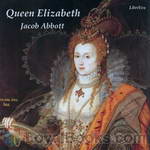 Queen Elizabeth
Queen Elizabeth
The history of a woman who rose above and beyond tragedy, grief and personal loss to become one of the most powerful figures in sixteenth century Europe is wonderfully told in this biography Queen Elizabeth, by Jacob Abbott. Beginning with the tragic circumstances of Elizabeth's mother, the lovely and doomed Anne Boleyn's execution and Henry VIII's dissolution of the English Catholic Church, the story of Elizabeth's rise to power is reflective of the England's domination of world politics as well... | |
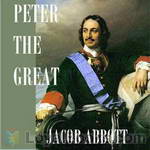 Peter the Great
Peter the Great
“There are very few persons who have not heard of the fame of Peter the Great, the founder, as he is generally regarded by mankind, of Russian civilization. The celebrity, however, of the great Muscovite sovereign among young persons is due in a great measure to the circumstance of his having repaired personally to Holland, in the course of his efforts to introduce the industrial arts among his people, in order to study himself the art and mystery of shipbuilding, and of his having worked with his own hands in a ship-yard there... | |
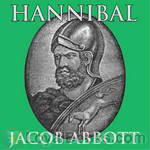 Hannibal
Hannibal
There are certain names which are familiar, as names, to all mankind; and every person who seeks for any degree of mental cultivation, feels desirous of informing himself of the leading outlines of their history, that he may know, in brief, what it was in their characters or their doings which has given them so widely-extended a fame. Consequently, great historical names alone are selected; and it has been the writer's aim to present the prominent and leading traits in their characters, and all the important events in their lives, in a bold and free manner, and yet in the plain and simple language which is so obviously required in works which aim at permanent and practical usefulness... | |
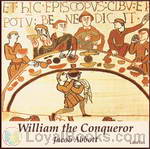 William the Conqueror
William the Conqueror
There are certain names which are familiar, as names, to all mankind; and every person who seeks for any degree of mental cultivation, feels desirous of informing himself of the leading outlines of their history, that he may know, in brief, what it was in their characters or their doings which has given them so widely-extended a fame. Consequently, great historical names alone are selected; and it has been the writer’s aim to present the prominent and leading traits in their characters, and all the important events in their lives, in a bold and free manner, and yet in the plain and simple language which is so obviously required in works which aim at permanent and practical usefulness... | |
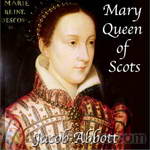 Mary Queen of Scots
Mary Queen of Scots
There are certain names which are familiar, as names, to all mankind; and every person who seeks for any degree of mental cultivation, feels desirous of informing himself of the leading outlines of their history, that he may know, in brief, what it was in their characters or their doings which has given them so widely-extended a fame. Consequently, great historical names alone are selected; and it has been the writer’s aim to present the prominent and leading traits in their characters, and all the important events in their lives, in a bold and free manner, and yet in the plain and simple language which is so obviously required in works which aim at permanent and practical usefulness... | |
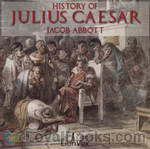 History of Julius Caesar
History of Julius Caesar
The book chronicles the extraordinary life and leadership of Rome’s Emperor Julius Caesar, from his early years to his assassination. | |
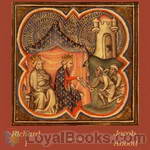 Richard I
Richard I
There are certain names which are familiar, as names, to all mankind; and every person who seeks for any degree of mental cultivation, feels desirous of informing himself of the leading outlines of their history, that he may know, in brief, what it was in their characters or their doings which has given them so widely-extended a fame. Consequently, great historical names alone are selected; and it has been the writer’s aim to present the prominent and leading traits in their characters, and all the important events in their lives, in a bold and free manner, and yet in the plain and simple language which is so obviously required in works which aim at permanent and practical usefulness... | |
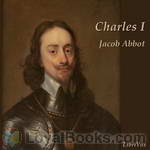 Charles I
Charles I
There are certain names which are familiar, as names, to all mankind; and every person who seeks for any degree of mental cultivation, feels desirous of informing himself of the leading outlines of their history, that he may know, in brief, what it was in their characters or their doings which has given them so widely-extended a fame. Consequently, great historical names alone are selected; and it has been the writer’s aim to present the prominent and leading traits in their characters, and all the important events in their lives, in a bold and free manner, and yet in the plain and simple language which is so obviously required in works which aim at permanent and practical usefulness... | |
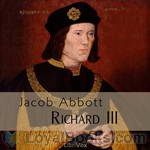 Richard III
Richard III
Jacob Abbott chronicles the unspeakably treacherous rise of Richard III to the throne of England in the midst of the war between the Yorks and the Lancasters and his ultimate fall on the Field of Bosworth. (Introduction by Cathy Barratt) | |
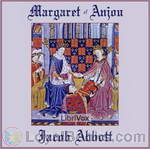 Margaret of Anjou
Margaret of Anjou
Margaret of Anjou, wife of England’s Henry VI, played a key role in launching the storied War of the Roses – the 30-year civil conflict fuelled by the Lancasters and the Yorks, each vying for the British throne in the 15th century. (Summary by Cathy Barratt.) | |
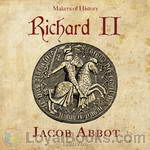 Richard II, Makers of History
Richard II, Makers of History
Chronicles the life of Richard II, born in 1367 in Bordeaux, France, who later wore the crown of King of England. | |
 Darius the Great Makers of History
Darius the Great Makers of History
| |
 History of King Charles the Second of England
History of King Charles the Second of England
| |
 Forests of Maine Marco Paul's Adventures in Pursuit of Knowledge
Forests of Maine Marco Paul's Adventures in Pursuit of Knowledge
| |
 Rollo on the Rhine
Rollo on the Rhine
| |
 Rollo in Switzerland
Rollo in Switzerland
| |
 Rollo's Museum
Rollo's Museum
| |
 Rollo's Experiments
Rollo's Experiments
| |
By: Baroness Emmuska Orczy (1865-1947) | |
|---|---|
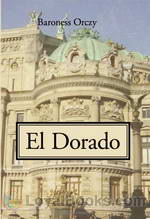 El Dorado
El Dorado
If you've read and loved the exciting classic The Scarlet Pimpernel then you'd probably be delighted to follow the further adventures of the dashing Sir Percy Blakeney. El Dorado by Baronness “Emmuska” Orczy depicts the intrepid swordsman and escape artist in the role of savior of the French royal family. Published in 1913, El Dorado was the fourth in the Pimpernel series of eleven books, numerous short stories and other related writings about her famous British adventurer. However, Orczy did not always follow a strict chronological sequence while publishing the novels and hence, there is plenty of overlap between the time frames of the stories... | |
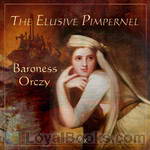 The Elusive Pimpernel
The Elusive Pimpernel
First Published in 1908, The Elusive Pimpernel by Baroness Orczy is the 4th book in the classic adventure series about the Scarlet Pimpernel. | |
By: Henry David Thoreau (1817-1862) | |
|---|---|
 Walden
Walden
Two years, two months and two days! This is what forms the time line of one man's quest for the simple life and a unique social experiment in complete self reliance and independence. Henry David Thoreau published Walden in 1884. Originally drafted as a series of essays describing a most significant episode in his life, it was finally released in book form with each essay taking on the form of a separate chapter. Thoreau's parents were in financial straights, but rich intellectually and culturally... | |
 A Week on the Concord and Merrimack Rivers
A Week on the Concord and Merrimack Rivers
| |